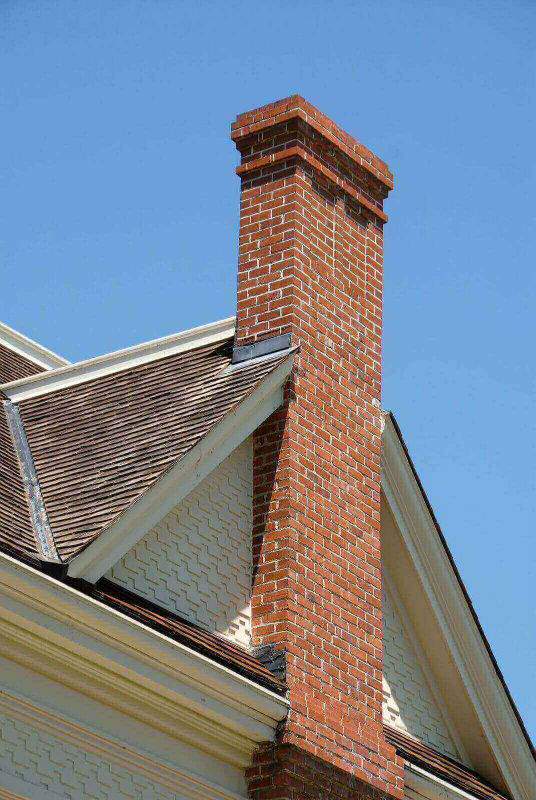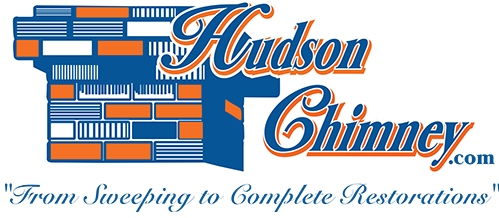Trust Hudson Chimney for Excellent Chimney Relining & Liner Replacement Services Near Jacksonville, FL
A chimney liner is a clay, ceramic, or metal pipe installed inside a the walls of your chimney. Intended to contain combustion byproducts, direct them outside, and protect your chimney’s walls from heat and corrosion, chimney liners serve a very important purpose in ensuring optimal, efficient, and safe appliance performance. Only considered necessary in the industry over the last few decades, it’s not surprising that we get lots of questions about whether or not chimneys need to be lined. And while the answer slightly depends on how the chimney is used and what specific and local residential building codes mandate, we believe that chimneys fitted with a flue liner offer the best and safest performance. So, if you’re in need of a professional chimney relining in the greater Jacksonville area, Hudson Chimney is the place to call. Get in touch by filling out this appointment request form or reach us by phone at 904-282-4159 to learn more today!
Following studies first done in the 1940s and then again in the ’80s, industry leaders such as the Chimney Safety Institute of America (CSIA) and the National Fire Protection Association (NFPA) found unlined chimneys to be extremely dangerous. Designed to monitor overall appliance performance and safety, these tests discovered that flue liners were instrumental in protecting both your chimney and fireplace system as well as your family from dangers like chimney fires and exposure to harmful gases. However, it’s not just important that you have a liner, it also matters what kind of liner. The appliance that vents into your chimney will determine the requirements of the chimney lining system you need, which is why it is best practice to have your chimney professionally inspected to be sure it meets modern safety standards, and is the right size, shape, and material for your specific appliance. Otherwise, you might be at risk for other liner-specific dangers. For example, an improperly-sized liner may restrict chimney draft to the point where wood smoke would enter your home. This may endanger those inside your home, especially if you use open flame gas logs or coals – these produce carbon monoxide that you cannot see or smell like you can with wood smoke.
The National Fire Protection Association (NFPA) Standard 211 requires that chimney liners be replaced if they are cracked, broken, or missing. This is crucial because cracked clay liners and deteriorating mortar joints can allow flue gases and carbon monoxide to enter your house. Because carbon monoxide is odorless and colorless, it is hard to detect, but it can be deadly. Cracks in your chimney liner may also potentially lead to a house fire, as there is combustible material surrounding your chimney. A professionally installed chimney liner, however, will protect your chimney from heat and corrosion.
The good news is that Hudson Chimney is here for all your chimney relining (or initial lining!) needs and offers a handful of cost-effective ways to make old chimneys safe for use. To learn more, give us a call at 904-282-4159, or get in touch through our website by filling out this form.

What Are My Chimney Relining Options?
At Hudson Chimney, we offer several options when it comes to relining chimneys. Depending on the sustained damage, we can either repair your current chimney liner, or discuss having a brand new one installed. However, in many cases, a chimney lining repair is quite difficult and we usually recommend a replacement in the form of stainless steel. Large, flexible piping that comes in a variety of alloys for use in different fireplaces with different fuel types, stainless steel is known for being high-quality and corrosion-resistant – leaving you with a functional liner for years to come.
We also offer HeatShield® flue liner repair solutions. A unique combination of ceramic and refractory materials (aptly coined “Cerfractory”), this sealant is used to resurface the inside of your flue liner – restoring it so that it is once again able to withstand the extreme temperatures and noxious fumes. If you’re interested in learning more about HeatShield® and whether or not you might be a candidate, get in touch with someone from our team! You can reach us right here, through our website, or give us a call at 904-282-4159.
Schedule Your Chimney Relining With Hudson Chimney Today!
Hudson Chimney owner Mark Hudson has been in the chimney sweep business for over 40 years and has seen times, standards, codes, and regulations change. He can advise you about what liner—if a new one is necessary at all—will work best in your chimney, depending on its age, function, condition, and the heating appliance attached to it. Not only do we sell and install stainless steel liners for both single and multiple flues, we can also design and install custom liners in all sizes, shapes, and designs to ensure that your old chimney is up to today’s code standards.
To ensure your fireplace is properly fit with a liner in good condition, it’s important to schedule your annual chimney inspection. If you have questions or would like to schedule a chimney inspection, dryer vent cleaning, or another of our hearth-related services, please don’t hesitate to contact us at 904-282-4159, or fill out this appointment request form.
Talk to us about the need for fireplace dampers and clean-out doors. It’s a good idea to work with professionals who provide complete chimney and fireplace services.
